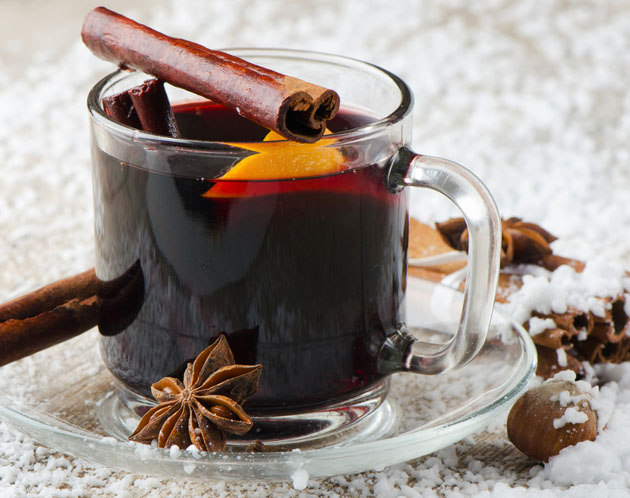
Mulled wine, a warm and spiced beverage, is a comforting tradition in cold weather, especially in Europe, where every wine-producing country has its own recipe and name for this drink. The French call it vin chaud, Hungarians refer to it as forralt bor, Germans enjoy glühwein, Scandinavians sip on glögg, and Italians in the north savor vin brulé. Despite regional differences, the universal appeal lies in its ability to warm both body and soul during frigid winters.
The preparation of mulled wine requires some finesse to transform the often harsh notes of warm red wine into a smooth and flavorful drink. The key lies in balancing the sweetness, spices, and temperature.
To make mulled wine, start by gently heating half a bottle of red wine in a saucepan over low heat. Add one or two cloves, a cinnamon stick, a star anise pod, a strip of orange peel, and two heaping tablespoons of sugar. Stir frequently to dissolve the sugar and prevent it from caramelizing or sticking to the pan. As the mixture warms, the spices and citrus release their aromatic oils, filling the air with the signature fragrance of mulled wine.
Before the wine reaches a boil, remove it from the heat to preserve its flavors and alcohol content. Strain the mixture to remove the spices and orange peel, then serve the warm beverage in tea cups or heat-resistant glasses. For an extra treat, pair it with dark chocolate or dried fruits, which complement the drink's rich and spicy notes.
The tradition of mulled wine has ancient roots, dating back to the Roman Empire, where it was first documented in the 1st century AD as a medicinal drink consumed by legionnaires. As the Roman armies spread across Europe, so too did the custom of drinking spiced, warmed wine during winter. Its enduring popularity is attributed to its ability to fortify the body, relax the mind, and lull one into restful sleep.
Every variation of mulled wine, whether it includes cinnamon, cloves, orange peel, cardamom, or star anise, hinges on the addition of a sweetener like sugar or honey. This step is crucial to mellow the sharpness of the alcohol and the dryness of the tannins, creating a harmonious balance of flavors.
Selecting the right wine is another essential element. While purists may frown upon altering fine wines with spices, not all reds are suited for mulling. The best choices are light, fruity wines with a fresh flavor profile, avoiding those with pronounced oak or heavy aging. Fortunately, affordable, good-quality wines are perfectly suitable for this preparation.
There is some debate about whether the wine should be brought to a boil during preparation. On one hand, boiling can diminish the nuanced flavors of the wine; on the other, it helps the spices fully infuse into the liquid. A compromise often favored by Hungarians, with their forralt bor, is to heat the wine just to the brink of boiling. This method preserves the wine's integrity while ensuring the spices are well integrated.
Served strained and steaming hot in tea cups, mulled wine is perfect for sipping while watching the icy flow of a river or simply enjoying a cold evening indoors. Whether it's Hungary's aromatic version, Germany's festive glühwein, or any other regional interpretation, mulled wine remains a quintessential winter comfort.
| More information |
|---|
| How to Make White Mulled Wine |
Founded in 2007, Vinetur® is a registered trademark of VGSC S.L. with a long history in the wine industry.
VGSC, S.L. with VAT number B70255591 is a spanish company legally registered in the Commercial Register of the city of Santiago de Compostela, with registration number: Bulletin 181, Reference 356049 in Volume 13, Page 107, Section 6, Sheet 45028, Entry 2.
Email: [email protected]
Headquarters and offices located in Vilagarcia de Arousa, Spain.